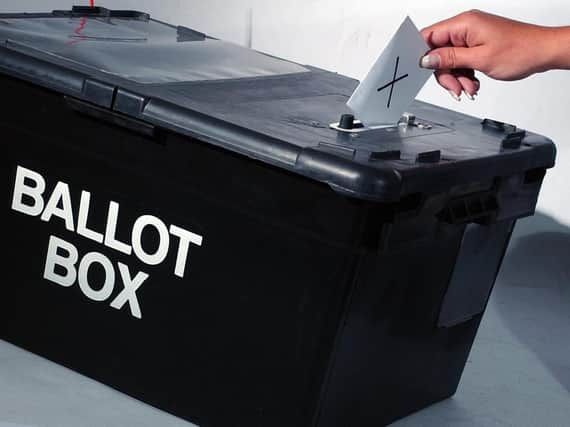We need fresh perspective to shake up election results by lowering the voting age


It appears as though every party but the Conservatives support reducing the voting age, with Kier Starmer himself suggesting that 16-17 year olds should be granted suffrage in England and Northern Ireland. The move provoked some vehement opposition which has only increased how disenfranchised the younger generations feel about politics. It also undermines democracy and represents the continuation of self-interested Conservative policies.
Allowing younger generations to vote could transform results, having the potential to massively reduce Tory wins or even completely swing the vote. In the 2017 election, only 19% of 18-19 year olds voted Conservative compared to the 69% of over 70s that did. Therefore, undoubtedly, enfranchising 16–17-year-olds would be a major threat to Conservative success which perhaps explains why they won’t budge on this issue.
Advertisement
Hide AdAdvertisement
Hide AdIf 16 year olds can contribute to the country by paying income tax or joining the army, shouldn’t they be able to have a say on the future of it? A problem highlighted through Brexit was that not only was the result extremely divisive, but also, it seemed as though the ‘Leave’ voters were primarily those aged 65 or over. How unfair that the destiny of the UK - something that young people will actually experience - is completely out of their hands and instead is dictated by over 60s.
Lowering the voting age seems to work well in other countries such as Austria and in the devolved Scottish Parliament. In fact, in the Scottish Referendum 2014, 75% of 16-18 year olds took part. This figure was indeed higher than the 54% of 18-24 year olds that turned out to vote and therefore challenges the misconception that all teenagers have ‘voter apathy.’
By introducing voting early to 16-17 year olds, they are more likely to retain the habit of voting, boosting long term participation. Students can get into the ‘voting routine’ by going to polling stations with parents, whereas first time voting is possibly the last thing on most university student’s minds. This has been backed up by research from University of Sheffield and Edinburgh, with Christine Huebner from the University of Sheffield Methods Institute stating: ‘‘Young people not only vote in higher numbers, they continue voting at ages where voter turnout is usually at its lowest.”
Teens must also have some form of political education in school, but the depth of this study varies school by school. Nonetheless, it’s reassuring to know that they’ll have some awareness about the political system - perhaps even more than some adults. After completing their secondary education, students will have some level of social knowledge and are deemed mature enough to make decisions on their own future eg career paths, further education etc. Surely they are mature enough to make decisions on the future of the country?
Advertisement
Hide AdAdvertisement
Hide AdI’m by no means saying that teenagers are the wisest, but the older generation continue to support the Tory party (despite the ever-increasing scandals) because they’re creatures of habit. So arguably, we do need a ‘fresh perspective’ to shake up the election results, seemingly by lowering the voting age.
Comment Guidelines
National World encourages reader discussion on our stories. User feedback, insights and back-and-forth exchanges add a rich layer of context to reporting. Please review our Community Guidelines before commenting.
